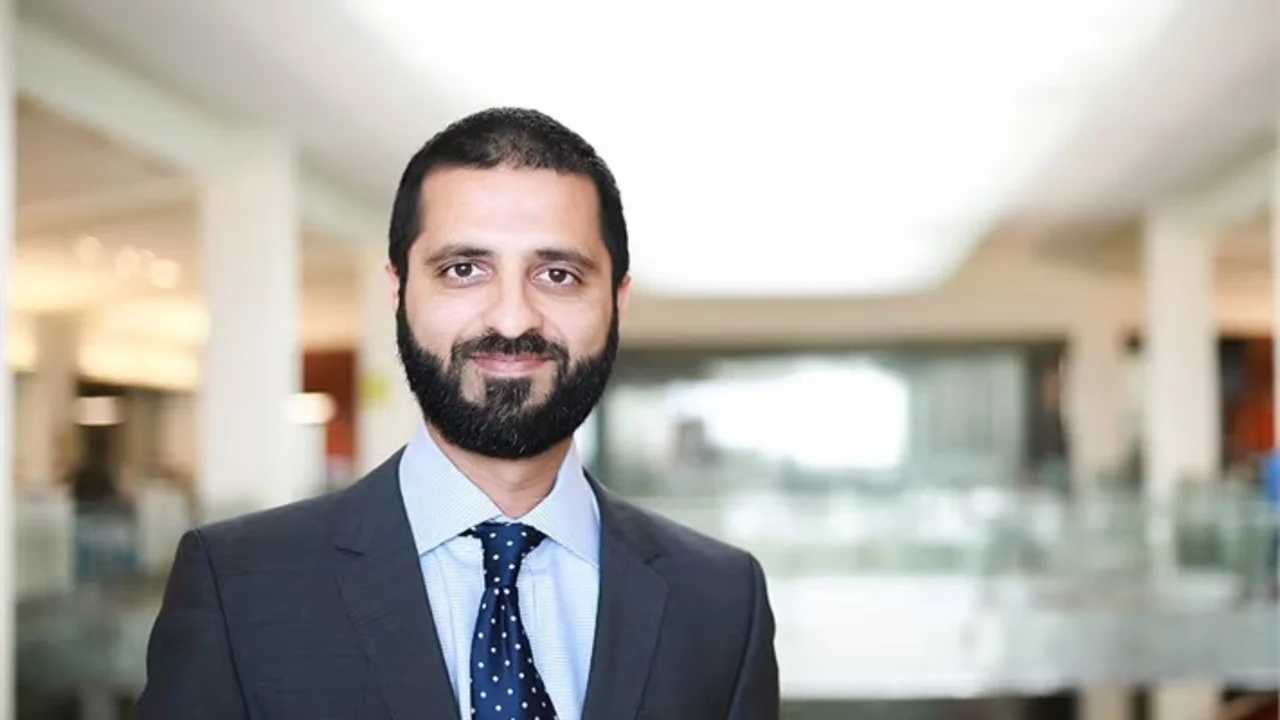
Aamir Farooq
Aamir Farooq is a Professor of Mechanical Engineering, affiliated with the Clean Combustion Research Center (CCRC) at KAUST. Professor Farooq’s group focuses on high-precision spectroscopy, laser-based sensors and fuel chemistry. Miniaturized semiconductor lasers are used to design highly sensitive and selective sensors that are portable and can be applied in industrial settings. They apply ML/AI methods to predict physical and chemical properties of fuels from molecular spectroscopic data. They have also used ML/AI to do spectral denoising and multi-species sensing. Professor Farooq’s group also develops laser-based sensors for biomedical and environment–monitoring applications.
Research Interests
Dr. Farooq’s research interests are in the areas of energy sciences, combustion chemistry, spectroscopy and laser-based sensors. He is the principal investigator of Chemical Kinetics and Laser Sensors Laboratory and is affiliated with the Clean Combustion Research Center. Professor Farooq’s group focuses on the development and use of advanced experimental techniques to understand fundamental processes in traditional and renewable energy-conversion devices. The laboratory carries out experimental research on chemical kinetics using shock tubes and rapid compression machine. These idealized reactors enable the study of reaction kinetics, fuel chemistry, ignition properties, and emissions under conditions suitable for future high-efficiency, low-emission engines, and gas turbines.
Professor Farooq is interested in the development of new laser-based sensors and their application to a variety of energy systems. These sensors are used to make in-situ measurements of various parameters of interest such as species concentration, gas temperature, flow velocity, mass flux, and particle number density. Small-sized quantum-cascade lasers are used to design highly sensitive sensors that are portable and can be applied directly in industrial settings. Also, Professor Farooq is interested in developing laser-based sensors for biomedical and environment–monitoring applications.
About
Education and early career
- Ph.D., Mechanical Engineering, Stanford University, Palo Alto, USA, 2010
- M.S., Mechanical Engineering, Stanford University, Palo Alto, USA, 2006
- B.S., Mechanical Engineering, GIK Institute of Engineering Sciences and Technology, Topi, Pakistan, 2002
Selected Publications
- E.F. Nasir, A. Farooq, "Intra-pulse laser absorption sensor with cavity enhancement for oxidation experiments in a rapid compression machine", Optics Express 26 14601 – 14609 (2018)
- M. Lamperti, B. Alsaif, D. Gatti, M. Fermann, P. Laporta, A. Farooq, M. Marangoni, "Absolute spectroscopy near 7.8 mm with a comb-locked extended-cavity quantum-cascade-laser", Scientific Reports 8 1292 (2018)
- M. AlAbbad, G. Issayev, J. Badra, A.K. Voice, B.R. Giri, K. Djebbi, A. Ahmed, S.M. Sarathy, A. Farooq, "Autoignition of straight-run naphtha: A promising fuel for advanced compression ignition engines", Combustion and Flame 189 337 – 346 (2018)
- M. Szori, B.R. Giri, Z. Wang, A.E. Dawood, B. Viskolcz, A. Farooq, "Glycerol carbonate as a fuel additive for a sustainable future", Sustainable Energy and Fuels 2 1271 – 1278 (2018)
- Alquaity, E. Essebbar, A. Farooq, "Sensitive and ultra-fast detection using pulsed cavity ringdown spectroscopy", Optics Express 23 7217-7226 (2015)
Professional Memberships
- Member, Optical Society of America
- Member, Combustion Institute
- Member, American Institute of Aeronautics and Astronautics
- Member, American Chemical Society
Awards and Distinctions
- Visiting Faculty Fellowship from the University of Lille, France (2016)
- Article selected for front cover of Sustainable Energy and Fuels (2018)
- Distinguished co-author paper award from the Combustion Institute (2011)
- Featured article award by the Institute of Physics (2009)
- Fellowship for PhD studies (2004 - 2010)